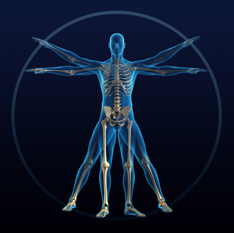Treatment
Physiatrists focus on the treatment of a person as a whole rather than a single condition. This is where physiatrists have an advantage. They’re able to look at the entire picture, the individual medical issues, and then understand how these issues affect a patient’s self care and mobility.
 Rather than following a standard one-size-fits-all approach, physiatrists work with individual patients to understand their condition and figure out a tailor-made solution for each of them. This may consist of one or more of the following non-surgical treatments:
Rather than following a standard one-size-fits-all approach, physiatrists work with individual patients to understand their condition and figure out a tailor-made solution for each of them. This may consist of one or more of the following non-surgical treatments:
- Acupuncture
- Assistive devices such as canes, walkers, wheelchairs, etc.
- Biofeedback and Electrotherapies
- Heat, Cold, and Traction Therapies
- Injections
- Massage (License #MM32516)
- Medications
- Orthotics (braces for upper or lower extremities)
- Prosthetics (artificial limbs)
- Physical therapy
Physiatrists treat some of the following common conditions:
- Acute and Chronic Injury
- ALS (Amyotrophic Lateral Sclerosis, also known as Lou Gehrig’s disease)
- Arthritis
- Birth Defects such as Cerebral Palsy
- Burns
- Carpal Tunnel Syndrome
- Fibromyalgia and Focal Muscle Discomfort from Injury
- Knee Injuries
- Management of Spasticity and Contractures
- Multiple Sclerosis
- Muscular Disorders
- Musculoskeletal Conditions, Back and Neck Aches
- Musculoskeletal Discomfort and Spasm
- Neuropathies
- Osteoporosis
- Polio and Post-Polio Syndrome
- Post-operative Rehabilitation
- Problems of Distress and Irritation following trauma and surgeries
- Progressive Neurological Diseases
- Rehabilitation of Amputees
- Repetitive Stress Injuries
- Shoulder Injuries
- Spinal Cord Injuries, Paraplegia, and Quadriplegia
- Sports Injuries
- Sprains and Strains
- Strokes
- Tendonitis and Bursitis
- Traumatic Injuries to the Brain
- Workplace Injuries
Our primary goal is to help our patients enhance the quality of their lives by reducing their pain.
Physical medicine and rehabilitation (PM&R), also known as physiatry, is a branch of medicine that deals with disorders of the bones, muscles, and the nerves. Apart from diagnosis and treatment of these disorders, physiatry also involves helping people prevent such disorders from occurring in the first place – after all, they are capable of causing permanent impairment in some cases.
The three main areas in which Physiatrists, also known as rehabilitation physicians, specialize are as follows:
· Rehabilitation of those who suffer from severe impairments such as Cerebral Palsy, Brain injury, stroke, injury to the Spinal Cord, etc.
· Diagnosis and treatment of pain syndromes and musculoskeletal injuries
· Electrodiagnostic Medicine: Evaluation
· and testing of nerve and muscle
· disease or injury
·
Even in cases where surgery is required, physiatrists coordinate with surgeons so that as soon as the surgery is over, they can take over the case again and continue to care for their patients. Regardless of which kind of physicians are involved – orthopaedic surgeons, neurologists, or health professionals such as physical or occupational therapists, psychologists, and speech pathologists – in helping patients solve their individual problems, physiatrists work with them and ensure that the patients are able to achieve a full recovery.
